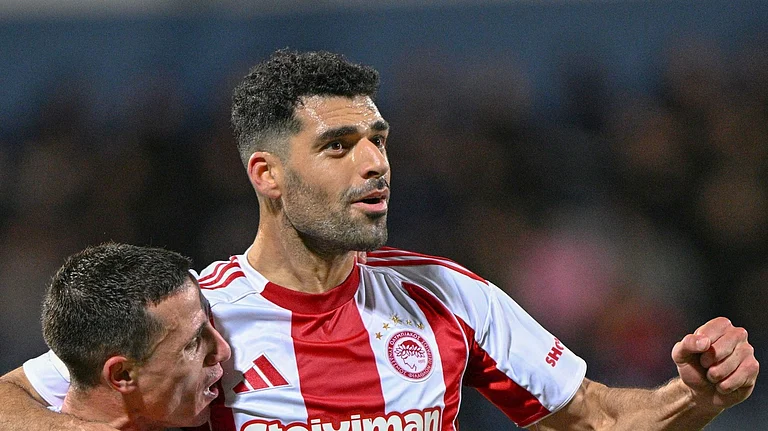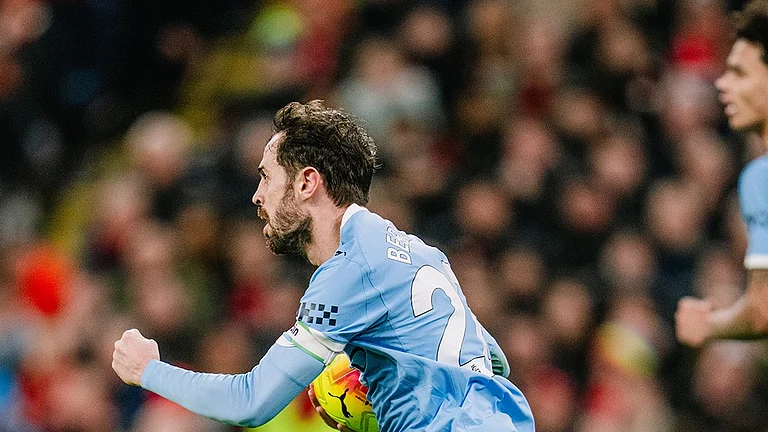Madeleine Albright was dressed in sombre black from head to toe as she stepped out of the presidential aircraft at Chaklala airbase. The colour matched the mood of Bill Clintons arrival which, the Americans went to great lengths to explain, was a very painful exercise for them. While Albright said Pakistan would not be Ôeasy, the state department drove in the last nail by giving Islamabad a difficult choice. "Return to democracy or risk being labelled a terrorist state," newspaper headlines shouted on Saturday morning.
Gen Pervez Musharraf substituted his army uniform for a white sherwani. But Washingtons agenda remained unchanged. Clinton did not mince words while spelling out conditions for future engagements with Pakistan. At the top of the list was a roadmap for the return of democracy. Musharraf held his ground publicly but reports indicate that he gave assurances that once the process was set in motion, he might step down even before "true democracy" was revived.
Clintons visit has given the politicians in the wilderness a nudge in the right direction and woken them from their stupor. "Well launch an agitation against Musharraf if he prolongs his stay and if he deviates from his agenda. The governments policies have sent a wave of shock amongst the people," announced the 19-party democratic alliance, which is now all set to include Nawaz Sharifs Muslim League. More than that, the stopover has brought about a sense of realism in future relations between the two countries which are based upon, besides a return to democracy, the signing of the ctbt, reduction of violence in the region and Pakistans influence on all extremist groups in Pakistan, Kashmir and Afghanistan.
"Whether we like it or not, the pro-India tilt in the US policy is a fait accompli and itd be naive on our part to expect even-handed treatment from the Americans," says Prof Khalid Mahmud, an expert on Indian affairs. "So Pakistan must make haste to reorient its foreign policy and look for alternative sources of support and assistance. But the Americans may have their own compulsions to rein in India from muscle-flexing in the region and use their influence to facilitate resumption of an India-Pakistan dialogue." The English daily, The News, wrote: "The visit has also given Musharraf a first-hand opportunity to state his case in person. Since he took over power in October last year, his image has been reaching the American policy-making machine through the media or the reports and assessments of the American embassy officials". Whether Musharraf can deliver or not remains to be seen but for starters he has admitted, for the first time and perhaps inadvertently, that the army has some control over the Kashmiri mujahideen. He gave the first indication minutes after Clinton flew out of Pakistan when he told a live press conference that "reciprocal action (before a dialogue resumed) means that the Indians need to stop human rights violations there, they need to stop atrocities across the Line of Control and we could also use our influence to moderate the activities of the freedom fighters".
But with no mandate from the people, this is easier said than done, especially with religious parties support within the army and with extremists certainly not in a mood for another betrayal "a la Kargil".
But to his credit, Musharraf has managed to draw Clinton into the Kashmiri problem, and Clinton has assured him that he would use his good offices to facilitate dialogue. Talking of the Lahore peace initiative, Clinton in his address said, "This is the right road to peace for Pakistan and India and for the resolution of the Kashmir problem. Therefore, Ill do all I can to help both sides restore the promise and the process of Lahore."
A senior foreign office official takes a positive view of the visit: "The presidents visit signals some balance in US South Asia policy. We had a very constructive engagement as the entire gamut of relations was discussed." But Pakistan Peoples Party chief Benazir Bhutto argues this is no time for the junta to rest on its laurels. "Pakistans economy is bankrupt and our friends talk with us in a tough language. Pakistan should review its foreign policy in the light of new realities in the subcontinent. If we dont take any steps on an emergency basis, we will be committing a blunder," she said. But the government publicly at least remains content. "We are quite satisfied with the US presidents continuing focus on the need to resolve this root cause of tension in South Asia," said foreign minister Abdus Sattar.
Whether Musharraf delivers or not is now of vital importance and something Washington will be watching closely. At present, a $280-million tranche from the imf is stuck. Thats sorely-needed money to balance funds for the coming two months, since Pakistans already facing a $1.4-billion deficit. The US president in his address to the Pakistanis promised restoration of full US economic and political partnership with Pakistan if Islamabad met the conditions but warned also that failure to meet them held the danger of international isolation.
The Clinton visit has put the onus of providing peace and security in the region on Pakistans platter. Musharraf says that he is under no pressure because he has the mandate of the people. But will his trip to Afghanistan, which he has been continuously postponing, stand the test with those extremists who are his supporters? The US stand on Afghanistan seems short-sighted and limited to one name: Osama bin Laden. Musharraf has been entrusted the task of delivering him. This is in itself no easy task. The Taliban have sent enough signals to Musharrafs top aides that they are not ready to play ball on this. Islamabad has maintained that Afghanistan is an independent country and the Americans can do their own dirty business directly. "I told Clinton that I can try and talk to the Taliban but it is a very complicated issue and I will make sincere efforts," said Musharraf at a press conference.
Coupled with this is the demand that Afghanistan shut all camps and sanctuaries training jehadis. "Were ourselves victims of terrorism and denounce it. I assured Clinton that I would like to engage with the Taliban and talk of any sanctuaries or camps and address this issue to satisfy the world community," Musharraf added. While in the past the US has insisted on a crackdown on militant outfits like the Lashkar-e-Toiba and Harkat-ul-Mujahideen, Musharraf says Clinton made no specific mention of these two groups.
Will Musharraf have the last laugh then? Clinton and the general appear to have hit it off and there were moments where Clinton actually relaxed to even talk about golf. "Clinton says that he has a handicap of 12. I have challenged him on that," said Musharraf with great satisfaction. Is Clinton game?





















